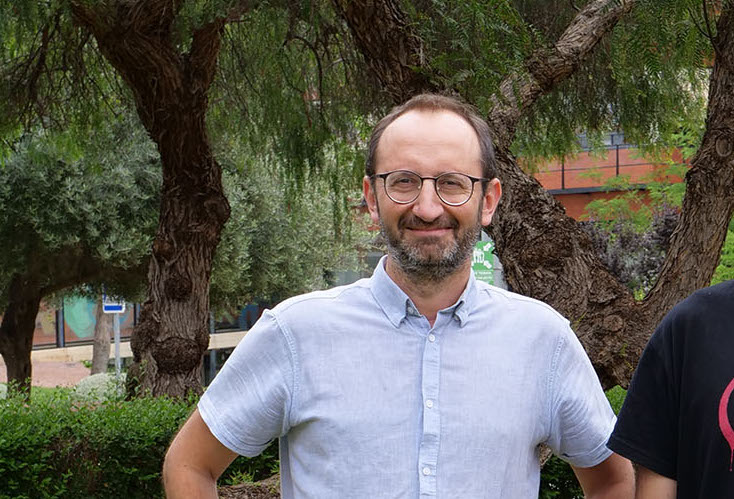The BBVA Foundation has just awarded a grant of 100,000 euros to the SCALE project directed by Gustau Camps-Valls, Professor of Electronic Engineering and researcher at the Image Processing Laboratory (IPL) of the University of Valencia. His team will use new mathematical techniques to investigate the impact of socio-economic changes on the biosphere. The objective, to advance in the understanding and sustainable development of today's society.
Current machine learning algorithms are effective in identifying patterns in large databases, but they fail to identify more abstract relationships such as cause and effect. The SCALE project (Causal inference in the human-biosphere coupled system) aims to advance in the field of causal inference from data, developing new algorithms that understand the problems and generate causal explanations automatically.
Formed by researchers from the University of Valencia and collaborators at the University of Leipzig and the German Space Agency (DLR) in Jena (Germany), the team will use this help to apply these algorithms to the system where the terrestrial biosphere and humans interact. "This is a system with multiple variables involved, which interact with each other and give rise to such complex phenomena as migrations or climate change," says Gustau Camps, a University professor and IPL researcher at the University's Science Park.
What is the impact of socio-economic transformations on the biosphere? When and why can the system become unstable? Are there turning points and critics of the system? The SCALE project will investigate these questions using innovative mathematical techniques, with the ultimate aim of advancing the understanding and sustainable development of today's society.
"Today we have mathematical methods for inferring causal relationships from data and observations that promise to revolutionise science and impact on a large number of social, economic and environmental applications," explains Camps-Valls, who last year participated in an article in the journal Nature Communications signed by 21 scientists from 6 countries.
Gustau Camps is the holder of an ERC Consolidator Grant and a Sinergy Grant project - also from the European Research Council - worth 10 million euros, recently received and aimed at improving climate models and the analysis and interpretation of data on the Earth system. "The applications are innumerable; we can test scientific hypotheses, check the validity of models, optimise treatments in medical clinics, effects of species adaptation on ecology; identify variables that dominate changes in the economic system, variables that cause the climate crisis and much more", he concludes.
A boost for scientific research
These grants for research projects from the BBVA Foundation represent a commitment to the promotion of scientific research and its projection into society, as a way of expanding individual and collective opportunities and effectively tackling the main challenges of the 21st century. The areas covered by this call for proposals are Biomedicine, Ecology and Conservation Biology, the Digital Economy and Society, the Digital Humanities and Big Data.
In the area of Big Data, 5 grants are awarded, with a maximum gross amount of 100,000 euros for each one, for basic or applied research projects for the analysis of big and complex data, including machine learning techniques and algorithms. 93 applications have been submitted to this edition. Of the five winning projects, one went to the University of Valencia and the rest to the University of A Coruña, the Polytechnic University of Madrid, the University of Seville and the CSIC.


